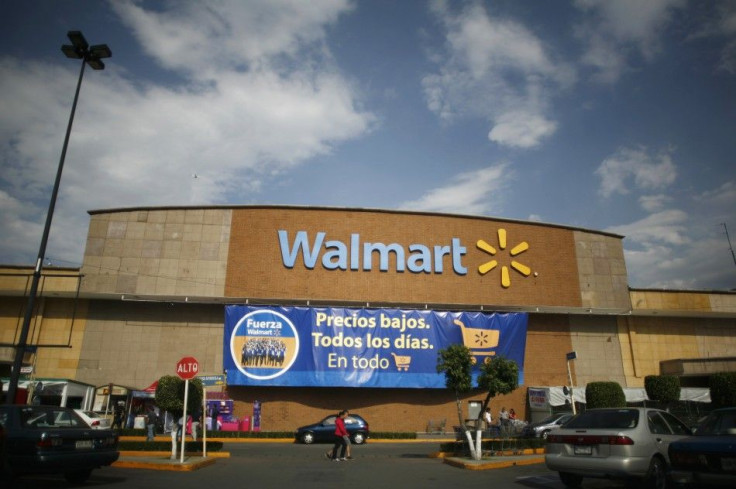Wal-Mart Mexican Bribery Scandal: How Much Will This Cost For The Retail Powerhouse?

After Wal-Mart Stores, the world's largest retailer, squashed an internal investigation into allegations of bribery at its Mexican subsidiary, shares for the stock plunged nearly five percent on April 23.
The sinking of the stock, which cost Wal-Mart $4.5 Billion, comes after its investors watched as the companies Mexican subsidiary tried to cover up accusations of corruption in their growth practices. Wal-Mart shares (NYSE: WMT) were down $3.04 Monday afternoon, or almost five percent, to $59.41.
According to The New York Times, Mexican Wal-Mart executives used systematic bribers to hurry-up the approval process for new stores across the country.
After learning of the bribes, Wal-Mart reportedly delayed an internal investigation into the situation and declined to promptly report the problems to the U.S. Government.
Eduardo Castro-Wright, the man described by The Times as the person responsible for directing the illegal operations, is currently serving as a Wal-Mart vice president, but is set to retire in July.
Since Wal-Mart is not the first publicly traded company to come under scrutiny for said illegal practices, The United States law is considered among the strictest in the world when it comes to paying bribes to foreign officials.
The Foreign Corrupt Practices Act (FCPA), a United States Federal Law, makes it a crime for any company, officer, director, employee or agent of a company to pay or bribe any foreign official for purposes of influencing any act or decision of such foreign official in his official capacity, inducing such foreign official to do or omit to do any act in violation of the lawful duty of such official, or securing any improper advantage.
While the Arkansas based company is meeting with the Justice Department and the Securities and Exchange Commission, Wal-Mart could be in violation of the FCPA and charged if the allegations prove true.
We take compliance with the U.S. Foreign Corrupt Practices Act very seriously and are committed to having a strong and effective global anti-corruption program in every country in which we operate, company spokesman David Tovar said in a statement.
Penalties and violations for the alleged crimes could include fines up to $25 million, and prison sentences of up to 20 years for individuals.
Faulty business practice allegations are not uncharted territory for the retail powerhouse, as previous scandals have turned their unethical standards into much publicized situations.
In 2004, a civil suit was filed against the company by illegal Wal-Mart workers who were detained on immigration charges, during a sweep of store raids that resulted in the arrest of hundreds of janitors.
The suit claimed that some workers were forced to work seven-day, 70-hour weeks for $1,500 a month. A year later, Wal-Mart paid $11 million to settle the claim.
Most recently, thousands of Wal-Mart worker's from seafood processing facilitates in Asia protested their extremely poor working conditions.
Early reports from the worksite indicate a series of severe human and worker rights violations, including confiscation of passports and conditions that appear to fit the definition of human trafficking and debt bondage.
But as Wal-Marts Mexican bribery scandal seems to linger on, an analysis done by UBS shows investigations, much like the one going on with Wal-Mart, to last between two to six years.
However, a more accelerated impact as a result of the investigations will be seen on Wal-Mart's Mexican Growth. A slowdown in new store openings could mean a five percent decrease in growth, a $1.3 billion loss, according to the UBS analysis.
While it remains too early to know the validity or repercussions of the bribery allegations... we believe Wal-Mart is dedicated to a thorough and transparent review after discussions with the company, Citi analyst Deborah Weinswig told Forbes.
© Copyright IBTimes 2025. All rights reserved.






















